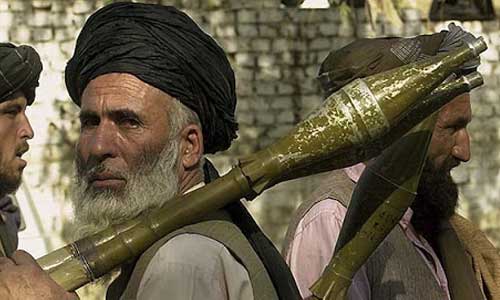Answering the question like: “Why life has lost its meaning for many Afghans” need reading some more pages about radicalism and extremism. Extremists are the people who is dark and life threatening with backward views and were seen as actively disregarding and trampling on others’ rights and as imposing their own religious preferences. Extremism is going beyond the “sharia”, the “state law” and the local traditions. For instance, Taliban, whose ambitions are conquering territory in Afghanistan attract fundamental fighters from inside and outside of the country to destruct the whole infrastructures of the nation under the name of establishing Emirate system. They call their actions “holy war” to mobilize fighters and to legitimize their killing of countless innocent people. Religious extremists tend to reject the notion of peaceful co-existence between different faith-based communities; they reject dissent and choice as well as freedom of press and religion. Addition to that is returning of extremism back to Afghanistan would have strong negative impact such as religious conflicts, broken economic, nation division and limited freedom. Unfortunately, the countries neighboring Afghanistan support the Taliban paramilitaries, which is lack of education, including of functional Islamic education. However, the reasons for Afghanistan is a fertilized land for producing violence are:
Afghanistan is a multi - religious and multi-cultural country. Religious motivation is the first push factor for targeting innocent people. For instance in these days, the country has witnessed new waves of violent extremism that have taken the lives of many guiltless children. In other words, religious motivation is driving the Taliban groups to target those who have different religious sect. Therefore, the rise of violent extremism and its banquet across villages and province borders gives a warning for all and the most dangerous extremism is the religiously inspired violent extremism. Violent extremism is the product of historical, political, economic and social circumstances, including the impact of neighboring, regional and global power politics in Afghanistan. The most dangerous aspect is radicals and violent extremist groups is misusing of Islamic terms to legitimate their action. As religious radicalization is happening within Islam, if it success, it does not give more chance to channel of communication corresponding dialogue, inter-faith conversation, compromise, reconciliation and public exchange.
Another reason for spreading of radicalism in the homeland is the existence of social problems like unemployment, poverty, weak institutions, and weak law enforcement in the government territory. These gaps have provided a fertile ground for violent extremism. Because there is an inter-connect relationship between youth unemployment on the one hand and violence and terrorism on the other. Youth who cannot find decent jobs may not be able to get married and may end up excluded from the economy and society alike. This causes tremendous frustration to youth and without the availability of channel this frustration a portion of those youth end up being driven down the path of radicalism and violent extremism believing that it is the only solution to induce change in the society. For the reason that, socio economic condition is very important issue in the chapter of extremism.
This point rooted in government ineffectiveness in providing public services such as health and education to their populations. This leaves a gap that is then filled by radical and violent extremist groups. By filling the gap left by states and by providing services to the population, radical and violent extremist groups gain a footing in society and gain some degree of legitimacy in the eyes of some of the population they serve. This, in turn, provides radical and violent extremist groups with an audience to propagate their radical views, ideology and a pool of potential recruits.
Finally, to counter with terrorism and deal with the social impacts of radicalism and violent extremism in Afghanistan, policy makers should pay attention to some dynamic issues: good governance, corruption and equal distribution of resources. For most criminal or politically motivated violent extremists, the turning point of de radicalization comes in a moment of disillusion or disenfranchisement usually as a result of excessive violence or actions not in line with their alleged ideals.
Furthermore, international organization field studies show that violent extremist groups in Afghanistan has a hearty connect with cross-border support networks in neighboring countries. For the purpose of maximum effectiveness in de-radicalization approaches, models should identify stages of radicalization where de-radicalization programs have the most potential to succeed. Prevention of violent extremism needs increase in the levels of inclusion and tolerance in communities. Tolerance for diversity and intercultural understanding are also at the heart of the sustainable development and particularly peaceful, just and inclusive society. The best strategies for preventing radical extremism in Afghanistan are promoting rule of law and human rights-based approach to enhancing the fight against corruption. Enhancing participatory decision-making and increasing civic space at national and local levels. Strengthening the capacity of local governments for service delivery and security. Promoting gender equality and women’s empowerment as well as engaging youth in building social cohesion. Working with faith-based organizations and religious leaders to counter the abuse of religion by violent extremists. Working with the media to promote human rights and tolerance. Promoting respect for human rights, diversity and a culture of global citizenship in schools and universities.
Home » Opinion » The Danger of Extremism for New Afghanistan
The Danger of Extremism for New Afghanistan
| Dawlat Bakhtiari

